Business Activity | @baristaacademy | The new specialty coffee arrived to taste with the students at the academy
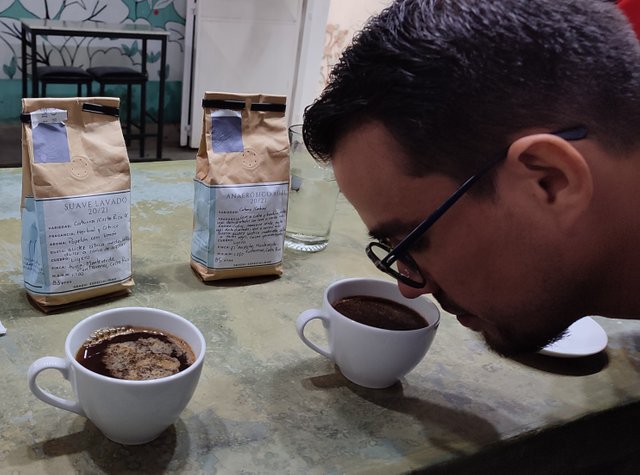
We are very happy because today we received two coffees from Costa Rica, roasted by a dear friend of the house, the Q Arabica grader, roaster and barista Óscar Chacón who currently lives in Costa Rica. We know that these coffees are a delicacy and we will be tasting them in our next intensive barista courses, we are very happy, because every time we increase the quality of our courses thanks to the rewards that we can obtain in our Steemit post, acquiring new equipment new high quality coffee among other things that we will be showing you in future publications.
In addition to sharing this joy with you, we also want to show you the sensory qualities of these good coffees, which we perceive when we taste them, if you want to know more about this, we invite you to continue reading our next publication.
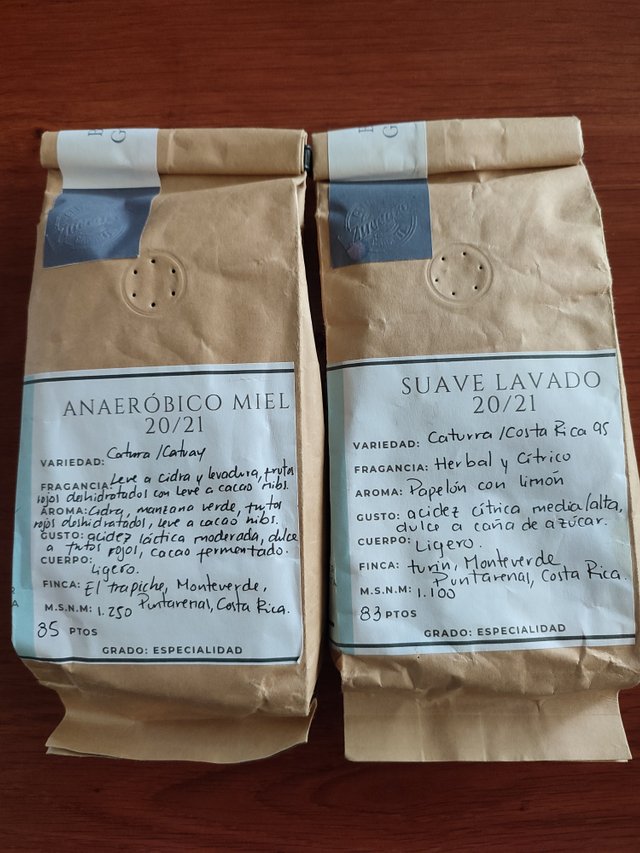
Among the new experiences that we are carrying out within Barista Academy, there is, then, we want our participants and students of each of our courses and activities to receive the correct and unique training, but not only that, but also, an approach to good coffees or specialty coffees from Latin America, in this case we have been working with specialty coffee from Colombia, coffee from growing areas in Venezuela and now we are receiving lots of roasted specialty coffee from Costa Rica, which will be marketed to our students, we are very happy because this would be pioneers in this type of practice in our area.
It is very important for new baristas to have this approach with good coffees since the coffee market is highly valued filtered coffees in alternative extraction methods and coffees that are of high quality or called specialty coffee or exotic coffee, what These are coffees that, in order to be called that, in addition to being tasted by a professional taster and obtaining a specific score, are also coffees that have high quality and that have unusual organoleptic qualities, such as fruity flavors, well-defined flavors, the so-called clean cup that is nothing more than a cup where you have no sensory defects or unpleasant flavors, very pleasant and sweet aromas among other things and that clearly differ from commercial or common coffees, we want our participants to develop their sensory memory in our trainings so that they can recognize good coffees both from Venezuela and from other parts of the world.
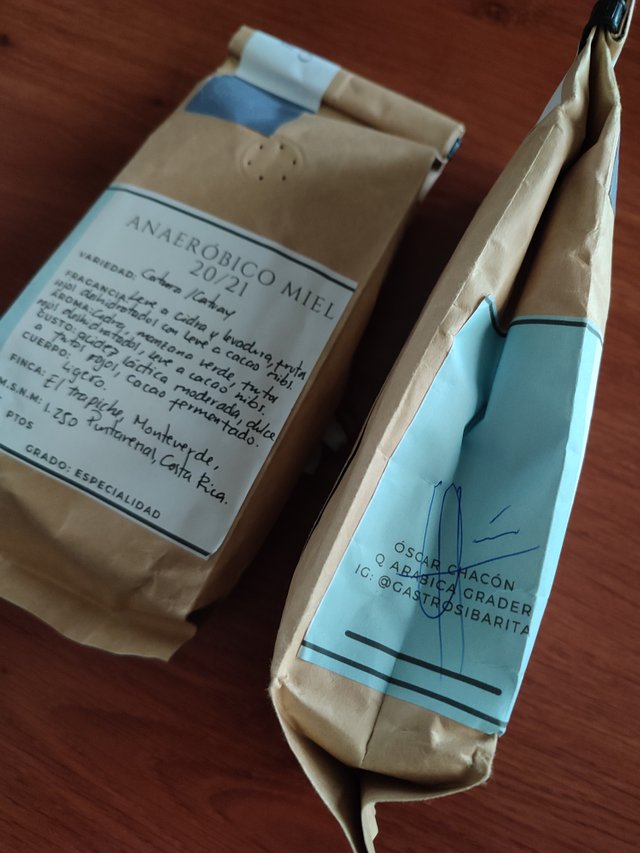
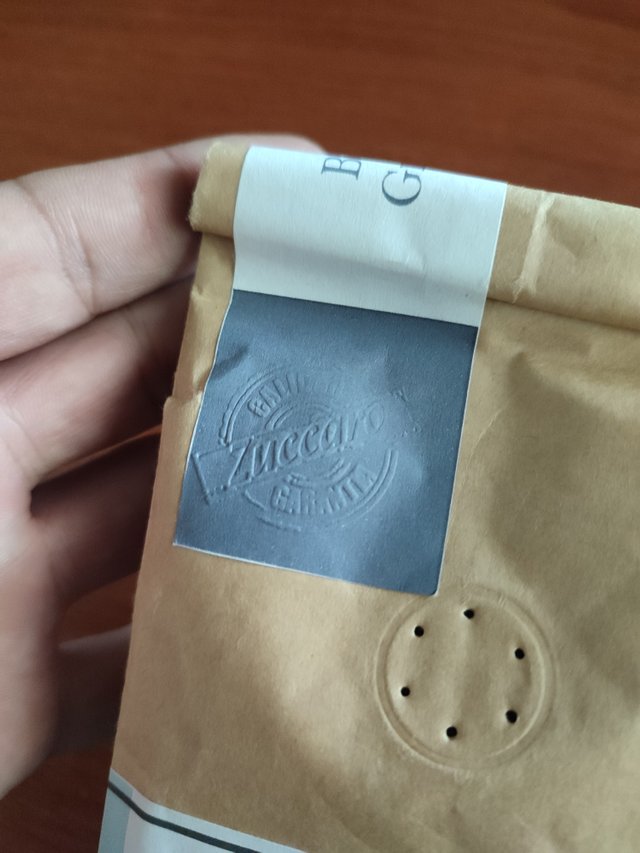
Two cafes so the same but different
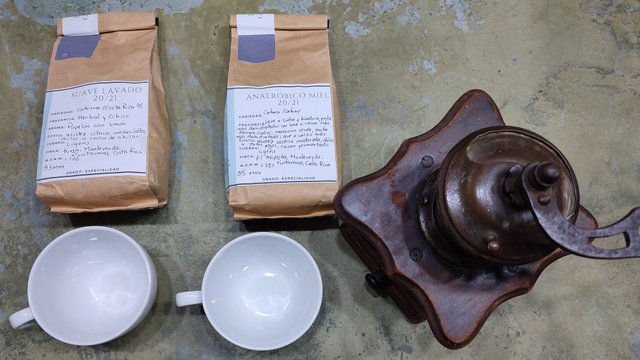
Speaking a little about these coffees that we are receiving, we can tell you that we have acquired two types of roasted specialty coffee beans, one is an anaerobic honey, which are coffees with a differentiating postharvest process and are made on the farm and anaerobic due to fermentation type anaerobic or without oxygen, for certain microorganisms that develop chemical compounds that enhance defined organoleptic notes.
The name honey is given to those coffees which are placed to dry or dehydrate with their mucilage, what is the pulp that fruits have, since as we all know, coffee is a fruit and from which we take the seeds to prepare our drinks.
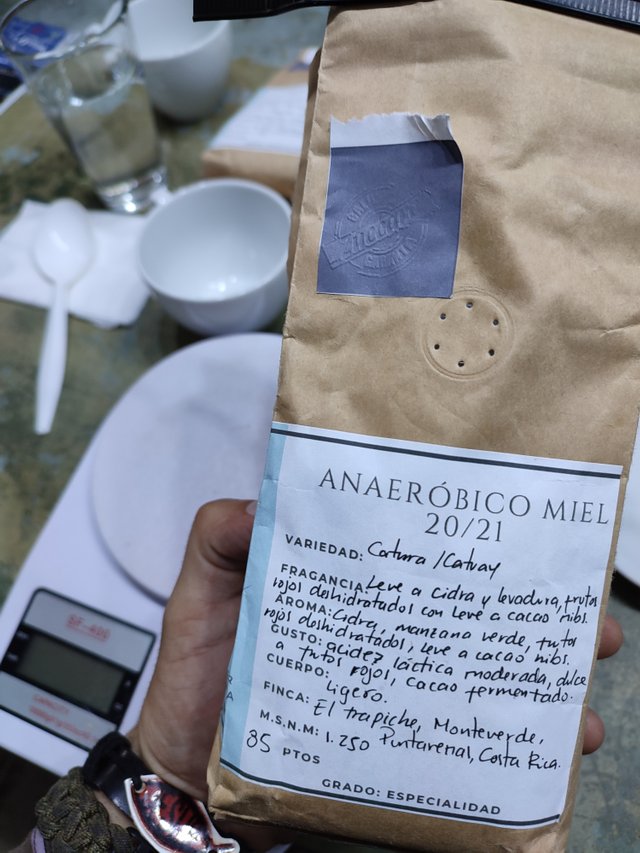
According to the label of this coffee, it says that it is a coffee of the Caturra and Catuai varieties, which are pure varieties and that theoretically it is said that they have good organoleptic properties and are very good for doing this type of special process, it also says that it has slight fragrances citron, yeast, dehydrated red fruits, cocoa nibs and has an aroma of cider, green apple, dehydrated red fruits, cocoa nis. Something very important that I want to mention here is that there is a difference between aroma and fragrance, to give you a brief description of these two concepts, fragrance is what we perceive through our nose when we have coffee beans, whether beans or ground, from dry form and the aroma is emitted when we put water, that is, it comes from the vapors of that hydrated coffee, well in some cases the notes can vary from dry to wet or the fragrance notes of the aromatic notes, in this case they are very similar.
Continuing with the traceability of this coffee and good, it says that it has a light body that was produced in the El Trapiche farm in Monteverde puntarenas Costa Rica at an altitude of 1250 meters above sea level and that it is a specialty grade coffee, because it has been Q Grader tasted for Arabica, which are the professional tasters and received score is 85 points. We should mention to our distinguished readers that coffees that score above 80 points are considered specialty grade coffee and coffees that score below 80 points are commercial grade coffees.
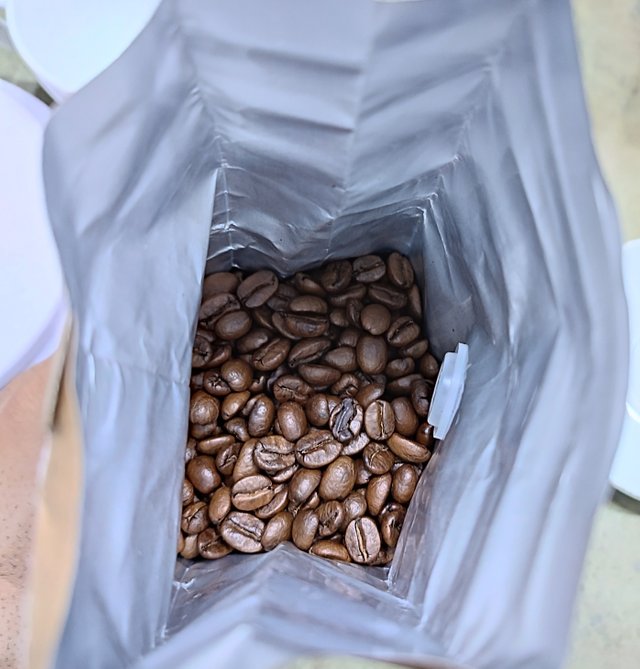
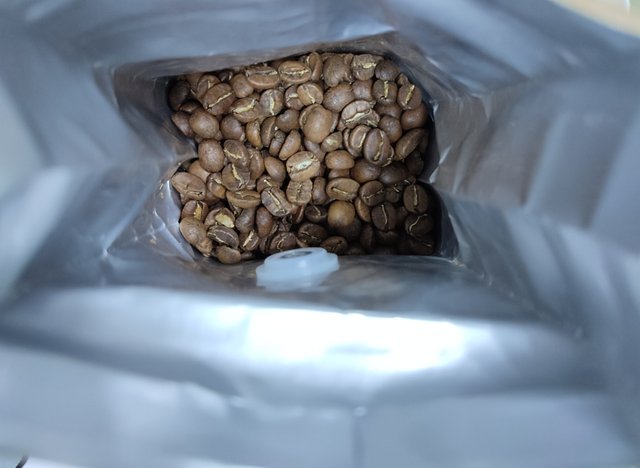
Our next coffee which we receive and that we will be evaluating at the cupping table is a mild 2020-2021 harvest wash, this coffee is of the Caturra variety and Costa Rica 95, the catura is a mutation of the Bourbon variety, which has very good organoleptic properties and Costa Rica 95 is a coffee that comes from the catimores, which is a mixture between caturra and a hybrid of timor, which has within its genes the robusta, which is a kind of coffee a little different and which we presume that It may have a disadvantage in terms of caturra or the pure varieties of coffee plants, but these beans have been qualified as a specialty coffee and it is seen that it is very well processed, it has a herbal and citrus fragrance, a "Papelon" aroma, what is it? a traditional sweetener from Venezuela from sugar cane, with lemon, medium-high citric acidity taste sweet to sugar cane, have light body and comes from the touring farm Monteverde puntarenas Costa Rica and was pro Produced at an altitude of 1100 meters above sea level, the tasters have evaluated this coffee and have given it a score of 83 points for what it classifies as a specialty coffee.
We evaluate before use
All the coffees that we receive in our academy are evaluated to verify that what is declared traceability or on the coffee label is what we have in the beans, that is why we make a cupping, being able also through this cupping to decide where and When will we use these beans, in this case we will use these coffees in our next intensive barista courses in the cupping module because they are very exclusive coffees.
To evaluate these coffees we use the cupping protocols in which we have to start a certain amount of beans, then grind to a pre-established grind and then pour the water, this will create a crust that will allow us to evaluate the aromas of these coffees, okay, how can we see? They are two coffees of different varieties and processes and these coffees have different colors in the bag so we can already know what process they have.
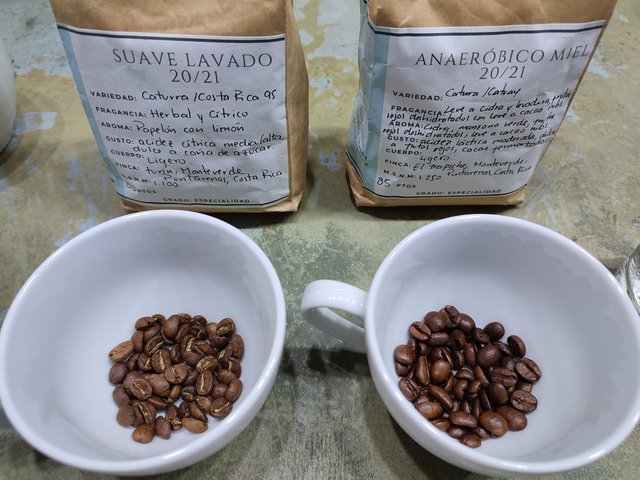
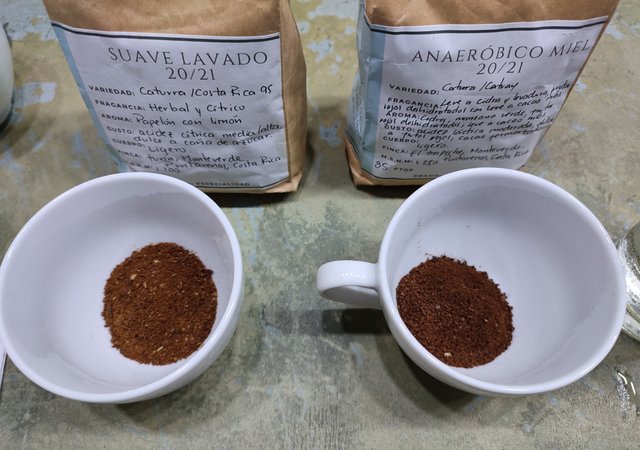
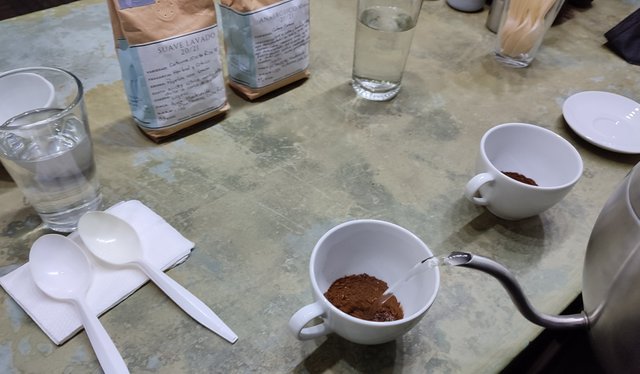
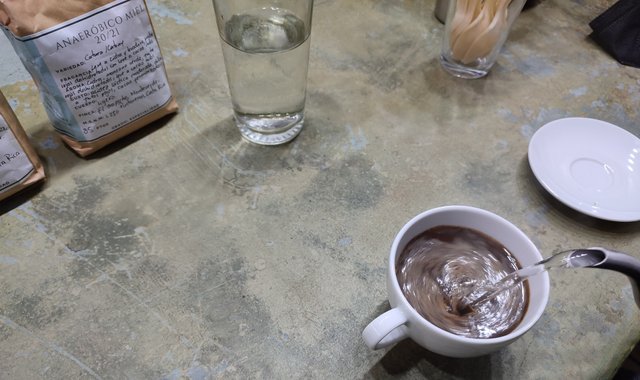
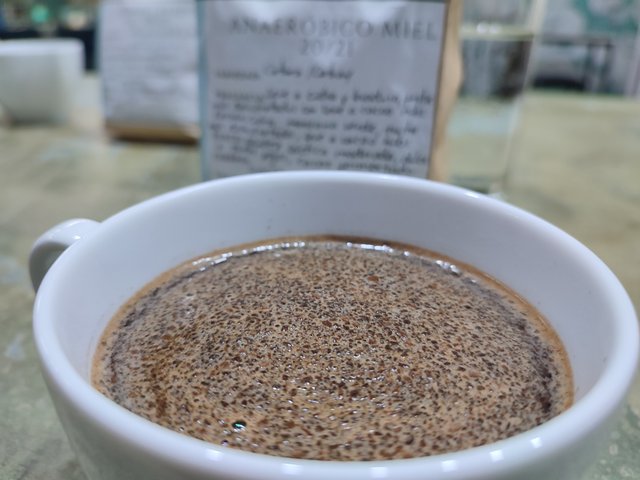
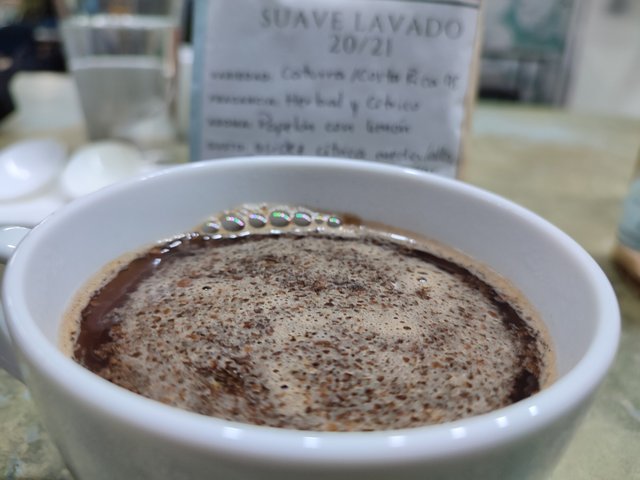
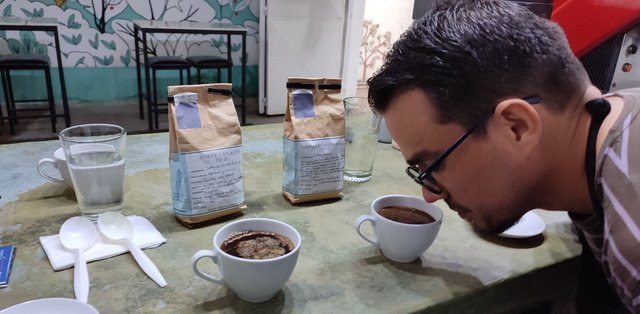
To cup these two coffees, as I mentioned before, we must follow a cupping protocol pre-established by the Specialty Coffee Association and which we must be very rigid when following it so that we can have a slightly biased valuation and that we can get as close as possible. possible to what has already been determined by professional tasters and which is declared in the traceability of the package, it is very important to place the water in which the correct temperature, the correct coffee-water ratio or ratio and wait the specific time for each sample
Once we have followed the protocols we continue to cupping and we must taste the coffees here we take advantage of evaluating what the body or density of our coffees has been, the color, the aromas and flavors, residual, among other things.
To end this publication, I must confess that these coffees have been very delicious and that what has been declared on the product label agrees with what we have tasted in our cupping session. Our next intensive barista course is almost there and the participants who are already registered will be tasting or will be tasting these coffees in the cupping section for which an exclusive experience awaits.
In addition to these coffees of origin Costa Rica, the participants will also be evaluating at the cupping table coffees from Medellín Colombia and coffee from exclusive farms in Venezuela, such as coffees from Laguna Suprema, coffee from hacienda 4d coffee and coffees from other farms.
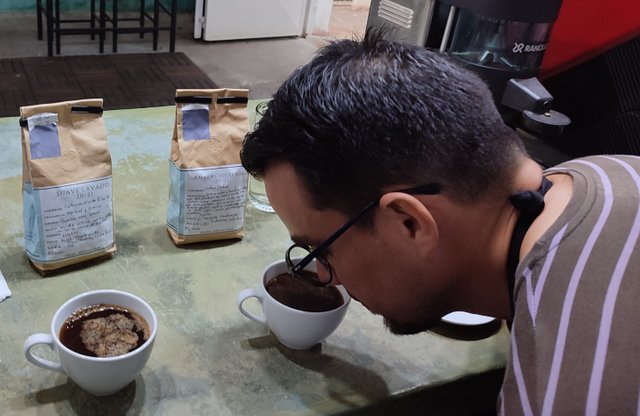
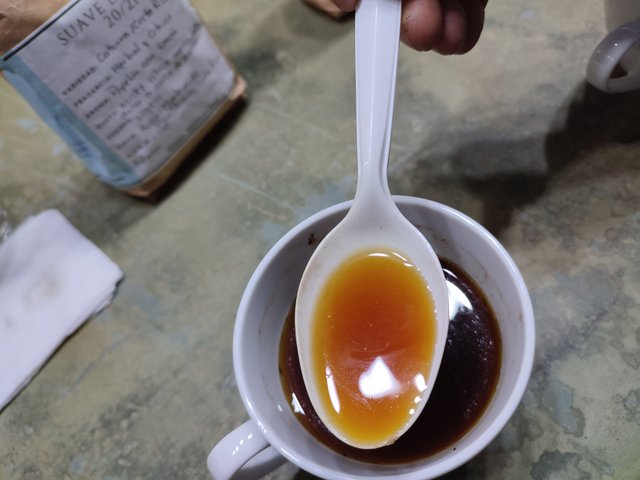
Acquisition Cost:
| Purchase Price 2 bags: | 5 Sbd |
|---|---|
| Shipment: | 1 Sbd |
| Total acquisition cost: | 6 Sbd |
Today we have had a fabulous experience with this umboxing and with this tasting of our coffee acquired in Costa Rica, the time has come to say goodbye after this experience and we invite you to continue reading our publications, to participate in our courses and also to participate in The online workshops, without more to mention, it was time to say goodbye until a next edition of the barista academy in Steemit.
Follow us on our instagram account as @baristaacademy_lecheria.
| Business name: | Barista Academy |
|---|---|
| Owner's name: | @daniellozada |
| Business address: | Lechería, Anzoategui, Venezuela. |
| About us: | Post Link |
We take this opportunity to send a greeting to:
@steemcoffeeshop
@arie.steem
@oscarcc89
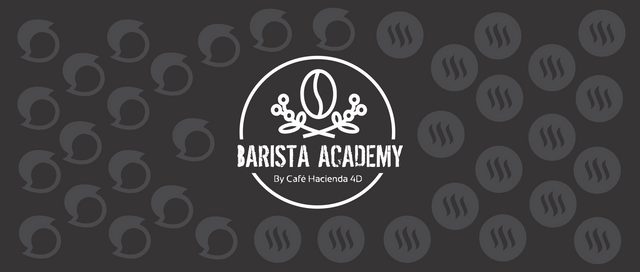
Hello @baristaacademy, what a pleasure to read your content again and see the excellent material that you provide us.
A unique experience to be able to perceive each aroma in the tasting process of very good coffees as detailed in his post, both coffee with honey and washed coffee.
Today he has shown us an excellent technique to know the sensory notes of coffee.
We are sure that the growth of your business will be extraordinary, thank you for sharing this material with us, breaking down a step-by-step content that undoubtedly attracts the reader's attention.
A pleasure to greet you!
Hello @gensequini, thank you very much for the support! Coffee tasting is fascinating and each coffee bean offers a unique experience and there is much to discover, I invite you to participate in one of our next courses!
I would really like to learn about this wonderful art. It all sounds so interesting.
@baristaacademy , It is indescribable what in words makes us move to the site in question and become passionate about these coffees, which has shown.
Without words, before so much good quality of information and content. Because, it is not only an image, it is the way in which he narrates this fabulous experience to carry out in his courses. indeed should you test and then take it to practice and learning with your student barista apprentices.
Your content is always valuable, unique and important, your talent in the area leads to leave a sample of it, to make us learn more about what you do.
Costa Rican coffee must be unique, as you mentioned, in smells, quality, flavor.
We are struck by the points for specialty grade coffees and commercial grade coffees. This would be excellent to share in a sample of several and learn about it.
I can't say goodbye without saying that your business is an example to follow for everyone in the community and for your colleagues. I want to cover more in this comment, but I would extend myself too much, congratulations on your content.
Greetings.
We are pleased to know that each time @baristaacademy opens its way to new horizons and has acquisitions from different countries.
A real pleasure to have you in our business community, always nourishing us with the basic knowledge about the different types of coffee and their preparations to be able to taste a quality coffee.
I am not a coffee lover, but tasting a good coffee is very pleasant.